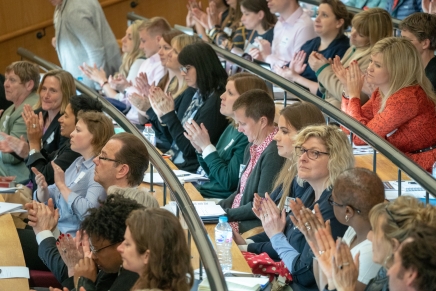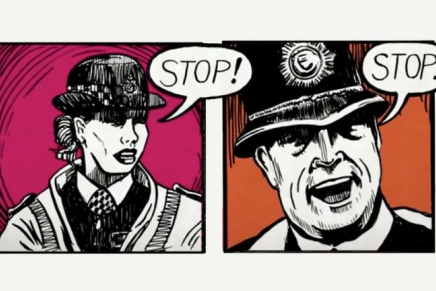At JfKL, I regularly come into contact with vulnerable young people. I advise them, take instructions from them, and represent their interests in correspondence and hearings. JfKL is one of only a handful of organisations with a legal team that specialises in working with young people. Before coming to JfKL, I worked at different commercial firms, another charity and an advice clinic. None of these organisations specialised in representing young people, but every one of these jobs involved working with children to some extent.
My experience suggests that at times most lawyers will work with young people in their professional life: from those dealing with personal injury, to those administering trusts; and from those working in crime to those in immigration. It’s hard to think of any area of non-corporate work where lawyers can guarantee they will never come into contact with children and young people. Even in my first job in wills and probate, we worked with young people as beneficiaries, or who had come into a sum of money and were setting up a trust.
In my view, all private client lawyers should be equipped to deal with young clients, who will always need something extra from their legal representatives. Children and young people are vulnerable within the legal system. They are less likely to understand their rights or what they can expect from their lawyer. It is in recognition of this that some areas of law have detailed rules and regulations designed to ensure children are protected and that their lawyers are equipped with the skills needed to work with them.
The recent decision by the Bar Standards Board that barristers undertaking youth court work must demonstrate their expertise is welcome, but that still leaves young people elsewhere in the justice system with no guarantee that their representatives have been trained to promote their particular interests. Surely the time has come for the Solicitors Regulation Authority to be more prescriptive about the training would-be solicitors?
Currently, the SRA stipulates that students on the Legal Practice Course and those doing the Professional Skills Course learn when to file board company minutes with Companies House, what searches to complete on a buyer’s new home, and how to examine a witness in court. Yet, they will never be taught how a court approves a child’s settlement for damages, how to keep a child out of criminal courts through Youth Offending Teams, or even that courts are obliged to take children’s welfare as a priority. Despite this, once the training contract is over, lawyers can go on to represent and advise children without further qualification, learning or review.
This is not to say that most lawyers don’t attempt to meet each client’s particular needs. However, no amount of good intentions can make up for a gap in knowledge. I worked on a case for a 10-year-old last year who was accused of threatening a teacher with a knife.
This was one of the first cases I had led on at JfKLI sought advice from my supervisor before taking instructions. She was familiar with the circumstances of the matter and suggested that the client would find it difficult to tell me about what happened in sufficient detail because he might think I would tell him off, or tell his mother. She also explained that he would be susceptible to being led by my questions, even if I tried to avoid this happening. When it came to getting the key facts we decided that the best way to work with him was to role play. He mimed how he held the knife, using exaggerated facial expressions to show me how he was feeling at the time and by the end of the meeting he was contributing more detailed information unprompted.
By the time of the school’s exclusion panel, the boy was confident enough to be able to give me instructions during the meeting to help answer questions. This was a very positive step and it meant that he had a voice.
Working with children is more universal in the world of law than working with house buyers, boards of directors or accountants. Yet it’s children who slip between the gaps. Few parents would be happy to allow their child to be treated by a doctor who didn’t understand how children differ from adults. Why should this be acceptable from their lawyers?
My experience convinces me that all lawyers should be given a basic understanding of how to represent children and young people as part of their compulsory training – or at least be taught that there is something to learn, so they can seek guidance when needed. After all, if we want to see a culture change, it must start with the way we learn.
A longer version of this blog appears in Legal Voice.

